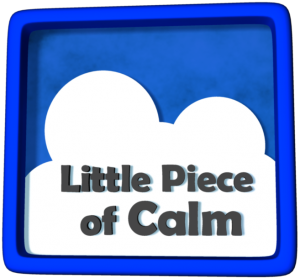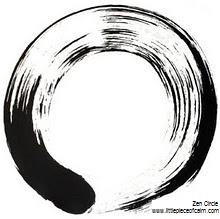We are trained to be ‘doers’ and we fill our days with ‘doings’. We strive to get things done. We feel a sense of completion in ticking off all the things on our To Do List.
Being so highly skilled at doing, we lose the ability to not do anything. The moment we have nothing to do, we try to fill it with something. We may tell ourselves that we have to keep ‘doing’ because we don’t want to slack off, or for fear of being bored. Yet these are really just excuses for our restless and scattered minds that are hard-wired to jump from one distraction to another. In a way, we are all sufferers of ADHD compared with our ancestors.
We may not realise how much this constant doing affects us until we start to break this habit and we realise how difficult it really is to break this cycle.
If you don’t believe me, let’s do an experiment. After you read this paragraph, turn away from your computer and notice what happens in your mind and to your senses.
What happened?
Did your eyes immediately scan the room for something to look at? Did your mind conjure up your To Do list of things you could be doing instead of this experiment? Did your hands itch to grab at something to play with? Did you itch to return to what you were doing with impatience at the silence of the moment? Do you reach out to your phone to start checking your messages?
I wonder how many readers had turned away from their laptops and just enjoyed the moment of nothingness without rushing the moment or filling it with something to do.
Recognising the habitual tendency of doing is important, but seeing its negative impact on our well-being is just as important. To see this, try the next experiment.
Tonight as you close your eyes to sleep, take a moment to investigate into what is happening in your mind. Is your mind calm and peaceful? Or sluggish with exhaustion? Or pounding with racing thoughts? Or replaying the day’s memories like a movie? Or so irate and irritated you don’t even dare to look into what is happening inside of your mind?
The next part of this experiment takes place the next morning when you wake up. Make a conscious effort to catch the earliest thought that you have for the day. Do you wake up refreshed and aware? Do you wake up confused about your surrounding? Do you wake up with your mind already talking to yourself and you gain consciousness in mid-sentence?
For those who fall asleep with ease and wake up refreshed, what conditions do you think created this quietude in your mind?
For those who fell asleep with mental exhaustion or racing thoughts, or woke up with the same mental thorns, what conditions do you think contributed to this state of mind?
For me, if my mind has been racing at 100 miles an hour all day and I don’t give it time to slow down in the evening, I fall asleep from the mental exhaustion of going at 100 miles an hour all day or I fall asleep with my mind still in a whirl. I then wake up feeling tired and restless, and sometimes I wake up with my mind still chattering away as if it had continued talking throughout my sleep.
Yet if I had taken the time in the evening to unwind from a day of work and happenings, I feel a real difference in the pace of my thoughts. If I take the time to just do nothing or allowing my mind to truly rest in meditation, I often fall asleep with ease and wake up about five minutes before my alarm goes off totally refreshed without waking throughout the night.
The ‘doing nothing’ that I am referring to does not mean slouched in front of the computer, or zoned out watching TV. These still stimulate the mind and the artificial lights signal to the brain that the day is not yet over. Our poor brains think the day’s still on foot, and keeps chugging away without rest. So next time when you’ve stimulated your brain with TV all evening and then you turn off the TV to go to bed, and you find that you’re wide awake…you know why.
So what doing nothing means is exactly that – to do nothing. Amazing how many readers get to this point and feel they need an explanation on what this means and how to do…nothing. Explore that. Why is it so hard to do nothing? Why is it so hard to just enjoy the moment without filling it with something?
It’s like the beginner sitting in meditation. The mind naturally starts to find something to do, or when it realises it has nothing to do it shuts off and falls asleep. The agitated and restless mind is not trained to be still and calm, but rather prefers the fidgety and highly-strung state to keep it alert. Yet that constant stress and agitation has a price as it wears out your energy and vitality.
Give yourself permission for say 15 minutes today to do nothing. In that time, indulge in the pleasure of not having to meet any deadlines, of not having to worry about what’s past, of not having to stress about the future. It is a time when you don’t need to do, don’t need to perform, don’t need to meet any expectation. A time when there is no success nor failure, where what happens in that space is what it is without any further judgement placed on it as worthwhile or not. It is a time not of doing, but of being.
A time dedicated solely to perfecting the art of doing nothing.


 Posts RSS
Posts RSS


I do have ADHD, and I am trying to cultivate the art of doing nothing.
Doing no-thing is a beautiful thing.